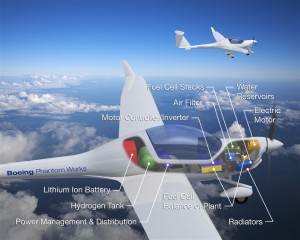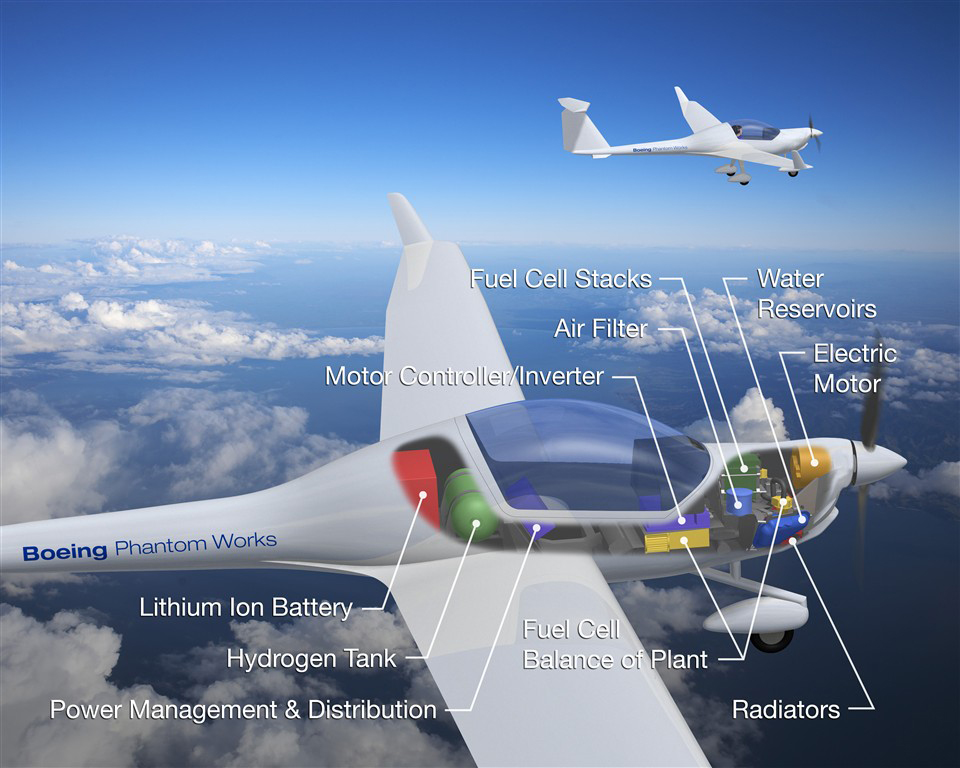
The electrically powered airplane concept has been around for years, but heavy batteries have been the greatest obstacle. Boeing Research and Technology Europe believes that lightweight lithium-ion batteries are the answer.
By Henry M. Holden
Boeing Corporation researchers plan to conduct experimental flight tests later this year of a manned airplane powered only by a fuel cell and lightweight batteries. Boeing Research and Technology Europe recently completed the Fuel Cell Demonstrator Airplane research project, underway since 2003. Thorough systems integration testing is now underway in preparation for upcoming ground and flight-testing.
A fuel cell is an electrochemical device that converts hydrogen directly into electricity and heat without combustion. Fuel cells are emission-free and quieter than hydrocarbon fuel-powered engines. They save fuel and are cleaner for the environment.
The demonstrator aircraft is a Dimona motor glider, built by Diamond Aircraft Industries of Austria, which also performed major structural modifications to the aircraft. With a wingspan of just over 53 feet, the airplane will be able to cruise at approximately 62 mph, using fuel cell-provided power.
The Boeing demonstrator uses a proton exchange membrane fuel cell/lithium-ion battery hybrid system to power an electric motor, which is coupled to a conventional propeller. The fuel cell provides all power for the cruise phase of flight. During takeoff and climb, the flight segment that requires the most power, the system draws on lightweight lithium-ion batteries.
Flight tests will take place in Spain and will demonstrate for the first time that a manned airplane can maintain a straight level flight with fuel cells as the only power source.
“Given the efficiency and environmental benefits of emerging fuel cell technology, Boeing wants to be on the forefront of developing and applying it to aerospace products,” said Francisco Escarti, BR&TE managing director.
The Fuel Cell Demonstrator Airplane project is an important step in that direction.
“While Boeing doesn’t envision that fuel cells will provide primary power for future commercial passenger airplanes, demonstrations like this help pave the way for the potential use of this technology in small manned and unmanned air vehicles,” Escarti said. “It also gives us hands-on experience to complement other fuel-cell studies being carried out throughout the company.”
Boeing researchers see promise in other applications of fuel-cell technology, including a solid oxide fuel cell in a secondary power-generating system, such as auxiliary power units. According to Boeing, in 10 to 15 years, this technology could be mature enough for potential use in commercial aviation.











